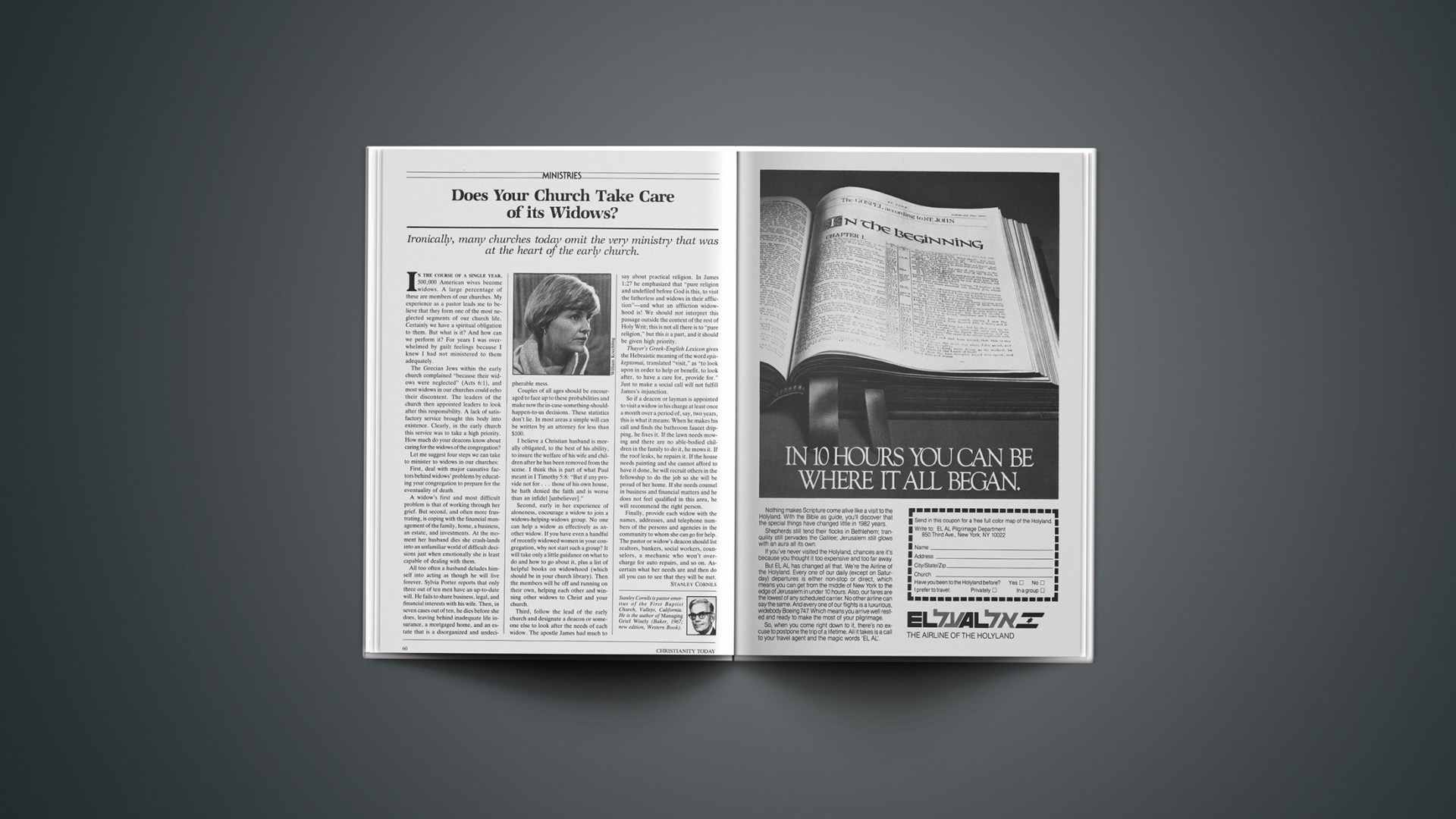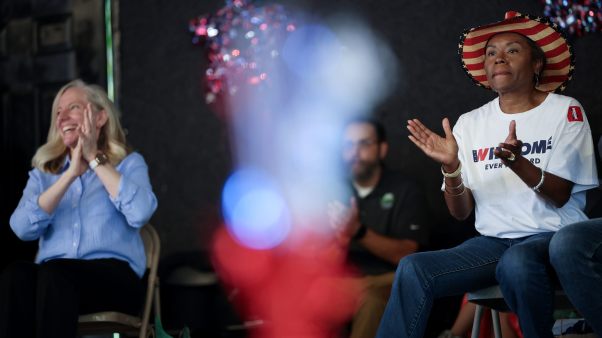Ironically, many churches today omit the very ministry that was at the heart of the early church.
In the course of a single year, 500,000 American wives become widows. A large percentage of these are members of our churches. My experience as a pastor leads me to believe that they form one of the most neglected segments of our church life. Certainly we have a spiritual obligation to them. But what is it? And how can we perform it? For years I was overwhelmed by guilt feelings because I knew I had not ministered to them adequately.
The Grecian Jews within the early church complained “because their widows were neglected” (Acts 6:1), and most widows in our churches could echo their discontent. The leaders of the church then appointed leaders to look after this responsibility. A lack of satisfactory service brought this body into existence. Clearly, in the early church this service was to take a high priority. Flow much do your deacons know about caring for the widows of the congregation?
Let me suggest four steps we can take to minister to widows in our churches: First, deal with major causative factors behind widows’ problems by educating your congregation to prepare for the eventuality of death.
A widow’s first and most difficult problem is that of working through her grief. But second, and often more frustrating, is coping with the financial management of the family, home, a business, an estate, and investments. At the moment her husband dies she crash-lands into an unfamiliar world of difficult decisions just when emotionally she is least capable of dealing with them.
All too often a husband deludes himself into acting as though he will live forever. Sylvia Porter reports that only three out of ten men have an up-to-date will. He fails to share business, legal, and financial interests with his wife. Then, in seven cases out of ten, he dies before she does, leaving behind inadequate life insurance, a mortgaged home, and an estate that is a disorganized and undecipherable mess.
Couples of all ages should be encouraged to face up to these probabilities and make now the in-case-something-should-happen-to-us decisions. These statistics don’t lie. In most areas a simple will can be written by an attorney for less than $100.
I believe a Christian husband is morally obligated, to the best of his ability, to insure the welfare of his wife and children after he has been removed from the scene. I think this is part of what Paul meant in 1 Timothy 5:8: “But if any provide not for … those of his own house, he hath denied the faith and is worse than an infidel [unbeliever].”
Second, early in her experience of aloneness, encourage a widow to join a widows-helping-widows group. No one can help a widow as effectively as another widow. If you have even a handful of recently widowed women in your congregation, why not start such a group? It will take only a little guidance on what to do and how to go about it, plus a list of helpful books on widowhood (which should be in your church library). Then the members will be off and running on their own, helping each other and winning other widows to Christ and your church.
Third, follow the lead of the early church and designate a deacon or someone else to look after the needs of each widow. The apostle James had much to say about practical religion. In James 1:27 he emphasized that “pure religion and undefiled before God is this, to visit the fatherless and widows in their affliction”—and what an affliction widowhood is! We should not interpret this passage outside the context of the rest of Holy Writ; this is not all there is to “pure religion,” but this is a part, and it should be given high priority.
Thayer’s Greek-English Lexicon gives the Hebraistic meaning of the word episkeptomai, translated “visit,” as “to look upon in order to help or benefit, to look after, to have a care for, provide for.” Just to make a social call will not fulfill James’s injunction.
So if a deacon or layman is appointed to visit a widow in his charge at least once a month over a period of, say, two years, this is what it means: When he makes his call and finds the bathroom faucet dripping, he fixes it. If the lawn needs mowing and there are no able-bodied children in the family to do it, he mows it. If the roof leaks, he repairs it. If the house needs painting and she cannot afford to have it done, he will recruit others in the fellowship to do the job so she will be proud of her home. If she needs counsel in business and financial matters and he does not feel qualified in this area, he will recommend the right person.
Finally, provide each widow with the names, addresses, and telephone numbers of the persons and agencies in the community to whom she can go for help. The pastor or widow’s deacon should list realtors, bankers, social workers, counselors, a mechanic who won’t overcharge for auto repairs, and so on. Ascertain what her needs are and then do all you can to see that they will be met.
STANLEY CORNILS1Stanley Cornils is pastor emeritus of the First Baptist Church, Vallejo, California. He is the author of Managing Grief Wisely (Baker, 1967; new edition, Western Book).










